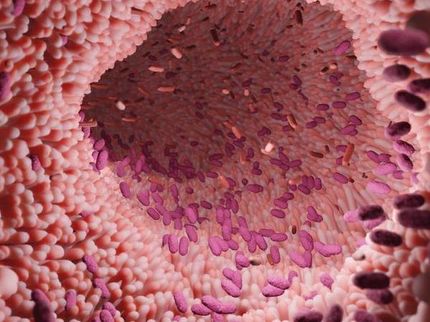The fiber of our being
We are all aware of the health benefits of "dietary fibre". But what is dietary fibre and how do we metabolise it?
Research at the University of York's Structural Biology Laboratory, in collaboration with groups in Canada, the USA and Sweden, has begun to uncover how our gut bacteria metabolise the complex dietary carbohydrates found in fruits and vegetables.
Trillions of bacteria live in human intestines - there are about ten times more bacterial cells in the average person's body than human ones. Known as "microbiota", these bacteria have a vital role to play in human health: they are central to our metabolism and well-being.
The research team has uncovered how one group of gut bacteria, known as Bacteroidetes, digest complex sugars known as xyloglucans. These make up to 25 per cent of the dry weight of dietary fruit and vegetables including lettuce, onion, aubergine and tomatoes.
Understanding how these bacteria digest complex carbohydrates informs studies on a wide range of nutritional issues. These include prebiotics (the consumption of 'beneficial' micro-organisms as a food supplement) and probiotics (the consumption of foods or supplements intended to stimulate the production of healthy bacteria in the gut).
Researchers from the York Structural Biology Laboratory in the University's Department of Chemistry, and international collaborators have carried out detailed structural and mechanistic studies into the precise functioning of specific enzymes. This work has shed further light on which organisms can and cannot digest certain fruits and vegetables, and how and why the "good bacteria" do what they do.
Professor Gideon Davies, who led the research at York, said: "Despite our omnivorous diet, humans aren't well equipped to eat complex plant matter; for this we rely on our gut bacteria. This work is helping us to understand the science of that process.
"The possible implications for commerce and industry extend beyond the realm of human nutrition, however. The study of how enzymes break down plant matter is also of direct relevance to the development of processes for environmentally-friendly energy solutions such as biofuels." The research at York was funded by the Biotechnology and Biological Sciences Research Council (BBSRC)
Most read news
Organizations
Other news from the department science

Get the life science industry in your inbox
By submitting this form you agree that LUMITOS AG will send you the newsletter(s) selected above by email. Your data will not be passed on to third parties. Your data will be stored and processed in accordance with our data protection regulations. LUMITOS may contact you by email for the purpose of advertising or market and opinion surveys. You can revoke your consent at any time without giving reasons to LUMITOS AG, Ernst-Augustin-Str. 2, 12489 Berlin, Germany or by e-mail at revoke@lumitos.com with effect for the future. In addition, each email contains a link to unsubscribe from the corresponding newsletter.
Most read news
More news from our other portals
Last viewed contents
Watermelon genome decoded - Decoded genome paves way for better watermelons

A boost for biofuel cells























































